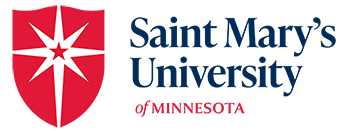Wieser conducts ongoing research about women in the workforce
Dr. Michelle Wieser, dean of the School of Business and Technology, has the same thoughts swirling around in her head as most career women. At any given moment, she’s thinking about her 13-year-old daughter’s after school commitments, presentations she needs to prepare for work, and what she’s making for dinner.
Today’s women want to do it all.
But Dr. Wieser believes that may be exactly the issue of why women aren’t excelling in the workforce in some instances.
“We need to be easier on ourselves,” she said. “We make ourselves feel guilty and get twisted up. I want to be the perfect colleague, dean, employee, wife, mom, volunteer, and friend. You’ve got to recognize that you can’t be perfect, there’s just no way.”
Beginning with her dissertation in 2016, Dr. Wieser has conducted ongoing research about the academic experience and career outcomes of female and minority MBA students and graduates of top-tier business schools. Each year, she has collaborated with Forté Foundation, an organization that partners with corporations, nonprofits, and graduate and undergraduate universities to address inequities at top business schools and the impact those inequities have on the business world.
Results have been shared in numerous publications including the Wall Street Journal and CBS news.
“I think way back when it started, the research was driven out of a desire to see women be successful in business school and in business in general,” she said. “It will always be a passion of mine. I want this world to be easier for my daughter. I grew up never thinking I couldn’t do whatever I wanted to do. That’s the way I’ve always approached everything. The reality is there are so many roadblocks still to what people face.”
For example, research has shown that women of color are lagging behind the other groups in virtually everything.
Another disheartening statistic for Dr. Wieser is the lack of pay equity between men and women.
“What is always shocking to me is the pay gap, and particularly how it widens as men and women progress in their careers,” she said. “When we look at the current salaries of men vs. women (all other things as equal as they can be statistically), men earn 17 percent more than women, and as these are MBA grads from top schools, that equals $36,000, which is a huge gap.”
The next thing Dr. Wieser and Forté want to focus on is understanding what is holding women back.
“We see women aren’t aiming as high as men. We have that data,” she said. “We know they’re hitting the sweet spot of their careers right as they are wanting to start families, so kids are entering the picture.”
But, there’s more to it.
“Working professionals are asked their opinions about work, and one of the big barriers to senior leadership in women, where there’s a marked difference between men and women is the lack of confidence and hesitancy of women to share their ambitions with leaders. I also find it interesting that women strive early for leadership but trail in striving for executive leadership; why is that?
Throughout her career, Dr. Wieser has seen men take a much more proactive approach to career advancement as they frequently apply to positions, even when they don’t meet several of the qualifications. Women are more cautious. “We’re perfectionists and hold ourselves to a very high standard,” she said. “We’re always worried about what people will think of us.”
Dr. Wieser said it’s her goal to peel back the layers and uncover whether women are talking themselves out of wanting more or whether the barriers they face are truly insurmountable.
One thing is for sure. She believes women need to be advocates for one another and more than allies.
“In my mind, whether it’s right or not, I view allies as those who say, ‘I support you, I’m here for you,’ but it can be passive or active. If you’re an advocate, you’re making something happen. So part of it is self advocacy and part of it is being really intentional about pulling other women up through the organization and encouraging them, even if it means they eventually seek higher levels of leadership at a different company. There needs to be mentorship opportunities at work and a clear formal career plan.”
Men, she said, receive far more regular coaching and mentoring than women.
“I’m constantly trying to improve myself and seek ways to become a better leader, but I have to be very proactive about it,” she said. “Research shows men are being presented with more opportunities for mentorship without having to seek it out.”
The presence (or lack of a documented career plan) must also be examined. “Men are moving farther ahead faster,” she said. “Someone in the organization is helping pull them further, whereas women are often scratching and clawing, trying to find their way.”
In the end, Dr. Wieser said, businesses and organizations need a blend of talented women and men at the helm.
Women bring a different set of skills and perspectives to leadership. “We know, and stats tell us, companies perform better when they have gender balance in the C-Suite and on their boards,” she said. “What women bring are characteristics like empathy and a genuine interest in other people, as well as strong communication and creativity. We need women in leadership.”

